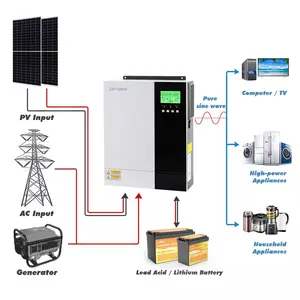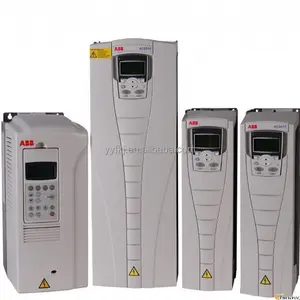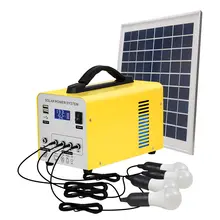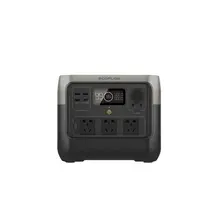Inverters: An Essential Component for Modern Energy Systems
Inverters play a pivotal role in the realm of energy conversion, serving as the backbone for transforming DC (direct current) into AC (alternating current). This category encompasses a broad spectrum of devices, from solar inverters designed for renewable energy systems to power inverters for home and commercial use, ensuring compatibility with grid electricity.
Understanding the Types and Applications of Inverters
The inverter landscape is diverse, with each type tailored to specific applications. Photovoltaic inverters, for instance, are integral to solar energy systems, converting the DC output of solar panels into AC for residential or commercial use. On the other hand, power inverters for car are designed to supply electricity for devices on the move, highlighting the versatility of inverters across various settings.
Features and Materials of Inverters
Inverters are characterized by their output waveform types, such as pure sine wave, which is crucial for the operation of sensitive electronic equipment. The construction of these devices often involves robust materials that ensure durability and longevity, catering to the demands of different environments, whether it be a residential inverter for home or a rugged solution for industrial applications.
Advantages of Integrating Inverters in Energy Systems
The integration of inverters into energy systems brings forth efficiency and adaptability. For instance, a DC to AC converter allows for the seamless use of conventional AC appliances even in off-grid setups. The advancement in inverter technology, such as Solaredge monitoring, also enables real-time tracking of energy production and consumption, optimizing the performance of solar installations.
Selecting the Right Inverter for Your Needs
Choosing the appropriate inverter requires an understanding of the specific needs of a system. Factors such as capacity, compatibility with inverter batteries, and the type of renewable energy source, if any, are crucial. For instance, pairing a Victron Multiplus inverter with a compatible luminous battery can enhance the efficiency of a home energy system.
Conclusion: The Role of Inverters in Contemporary Energy Solutions
In conclusion, inverters are indispensable in the conversion and management of electrical energy across various applications. With the rise of renewable energy solutions, the importance of devices like the photovoltaic inverter and systems that support Solaredge monitoring continues to grow, marking inverters as a key component in the sustainable energy landscape.


































 浙公网安备 33010002000092号
浙公网安备 33010002000092号 浙B2-20120091-4
浙B2-20120091-4